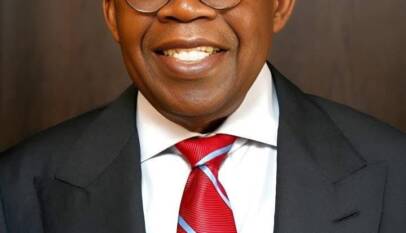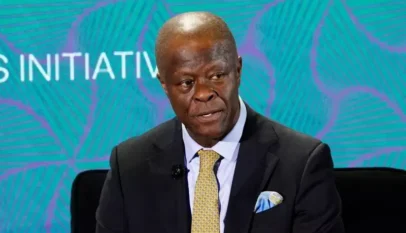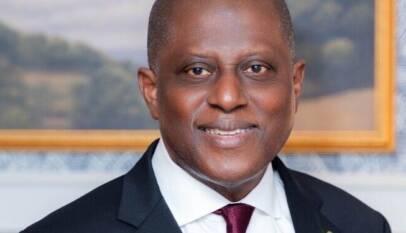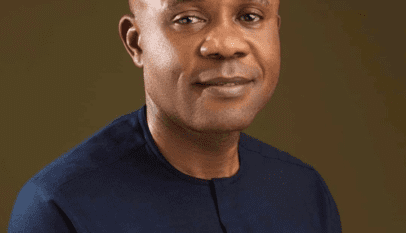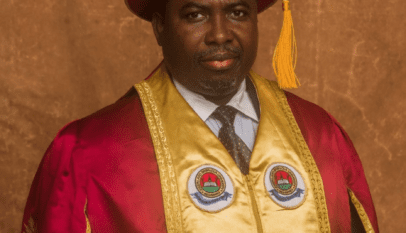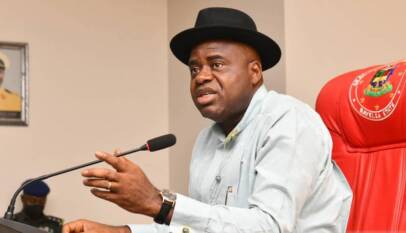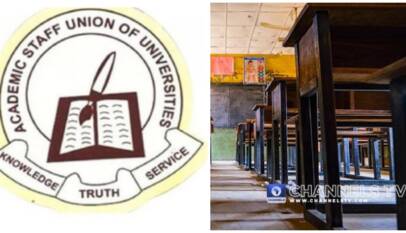Photo: President Tinubu with Minister of Finance, Mr Wale Edun
President Bola Ahmed Tinubu on Friday signed the 2025 budget of a staggering N54.99 trillion into law at a short ceremony held at the State House Abuja.
The National Assembly had passed the budget on February 13, increasing the proposed figure from N49.7 trillion to N54.99 trillion, reflecting a significant revision.
The 2025 budget is nearly double the N27.5 trillion approved for 2024, marking an impressive 99.96% increase.
The jump from 2024 to 2025 highlights the government’s commitment to boosting capital expenditure, investing in infrastructure, and addressing fiscal challenges.
While the 2024 budget was aimed at stabilizing the economy and supporting key sectors, the 2025 budget seeks to expand and enhance economic growth, infrastructure, and public services.
Key Allocations in the 2025 Budget:
| Budget Category | Amount (₦ Trillion) | Percentage of Total Budget |
|---|---|---|
| Total Budget | 54.99 | 100% |
| Statutory Transfers | 3.65 | 6.64% |
| Recurrent (Non-Debt) Expenditure | 13.64 | 24.82% |
| Capital Projects | 23.96 | 43.56% |
| Debt Servicing | 14.32 | 26.04% |
| Fiscal Deficit (as % of GDP) | 1.52% | – |
Comparison with the 2024 Budget:
In comparison, the 2024 budget was set at ₦27.5 trillion, significantly smaller than the ₦54.99 trillion approved for 2025. The main objectives of the 2024 budget focused on stabilizing the economy, managing inflation, and supporting recovery post-pandemic. It also prioritized debt servicing, recurrent expenditure, and capital projects, though with a lower overall allocation.
| Budget Category | 2024 Budget (₦ Trillion) | 2025 Budget (₦ Trillion) | Difference |
|---|---|---|---|
| Total Budget | 27.5 | 54.99 | +27.49 trillion (99.96%) |
| Statutory Transfers | 3.3 | 3.65 | +0.35 trillion (10.61%) |
| Recurrent (Non-Debt) Expenditure | 9.6 | 13.64 | +4.04 trillion (42.08%) |
| Capital Projects | 12.0 | 23.96 | +11.96 trillion (99.67%) |
| Debt Servicing | 8.1 | 14.32 | +6.22 trillion (76.67%) |
| Fiscal Deficit (as % of GDP) | 4.2% | 1.52% | -2.68% |
Key differences between the two budgets include:
- Capital Projects: The 2025 budget has a ₦23.96 trillion allocation for capital expenditure, more than doubling the ₦12 trillion set aside in 2024. This significant increase shows a focus on expanding and improving national infrastructure, including transportation, energy, and healthcare projects.
- Debt Servicing: Debt servicing in the 2025 budget has risen to ₦14.32 trillion, up from ₦8.1 trillion in 2024. This increase reflects the growing debt obligations that the government is facing, underscoring the need for careful management of the country’s debt.
- Recurrent Expenditure: The recurrent (non-debt) expenditure has risen from ₦9.6 trillion in 2024 to ₦13.64 trillion in 2025, signaling an increase in the cost of government operations, including public sector wages, pensions, and other administrative expenses.
- Fiscal Deficit: The fiscal deficit for the 2025 budget is expected to be 1.52% of GDP, a notable decrease from the 4.2% projected for 2024. This indicates the government’s efforts to reduce the gap between its revenue and expenditure, with a more controlled and sustainable deficit.
The 2025 budget is a substantial increase from the 2024 budget, reflecting a shift towards more ambitious infrastructure investments, better debt management, and a focus on reducing the fiscal deficit. It also shows the government’s intent to stimulate economic growth and improve public services significantly. ]
The difference in budget size highlights the administration’s commitment to addressing national priorities while managing economic challenges.


